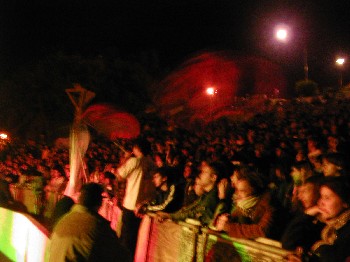In April, judges in Argentine federal courts in the province of Buenos Aires threw out drug possession charges against two young men arrested at a 2007 electronic music festival, saying they were unconstitutional. Last week, more Argentine courts weighed in, with a group of judges echoing that ruling as they considered the case of a young man arrested for marijuana possession.

For the past several years, the Argentine government has been working on a rewrite of the country's drug laws, but judges there are not waiting for the legislature to do its work. Their rulings are winning the support of constitutional scholars and are in line with the attitudes of the government of President Cristina Fernández de Kirchner. AnÃbal Fernández, the minister of justice, security, and health, has publicly denounced the country's drug laws as a "catastrophe."
"This criterion fits in well with the laws of more civilized nations," Daniel Sabsay, an Argentine constitutional scholar, told Buenos Aires's Clarin newspaper. "I believe that with this, the sense of a broadening of freedom is respected."
Comments
¡¡Aguante, loco!!
¡¡Aguante, loco!!
Add new comment